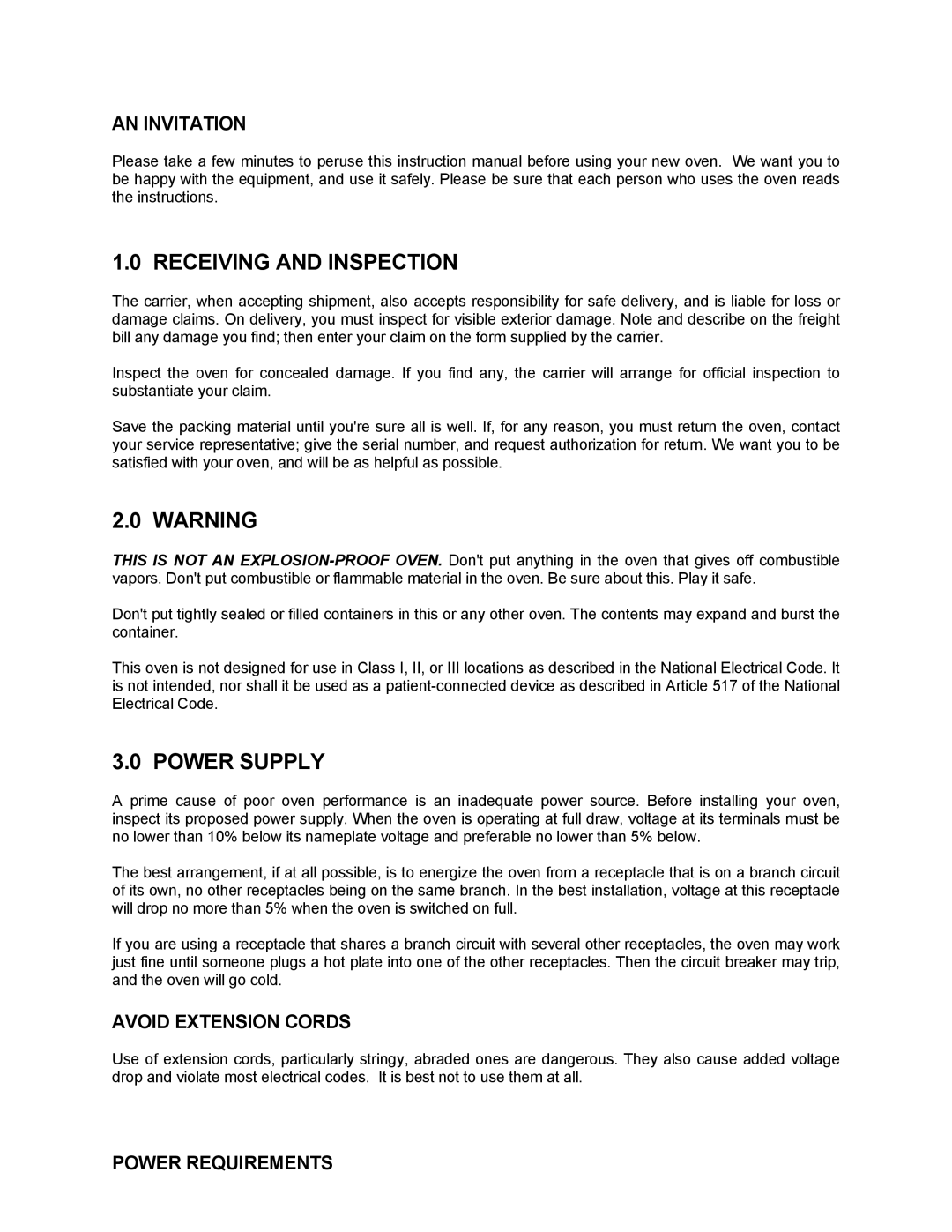AN INVITATION
Please take a few minutes to peruse this instruction manual before using your new oven. We want you to be happy with the equipment, and use it safely. Please be sure that each person who uses the oven reads the instructions.
1.0 RECEIVING AND INSPECTION
The carrier, when accepting shipment, also accepts responsibility for safe delivery, and is liable for loss or damage claims. On delivery, you must inspect for visible exterior damage. Note and describe on the freight bill any damage you find; then enter your claim on the form supplied by the carrier.
Inspect the oven for concealed damage. If you find any, the carrier will arrange for official inspection to substantiate your claim.
Save the packing material until you're sure all is well. If, for any reason, you must return the oven, contact your service representative; give the serial number, and request authorization for return. We want you to be satisfied with your oven, and will be as helpful as possible.
2.0 WARNING
THIS IS NOT AN
Don't put tightly sealed or filled containers in this or any other oven. The contents may expand and burst the container.
This oven is not designed for use in Class I, II, or III locations as described in the National Electrical Code. It is not intended, nor shall it be used as a
3.0 POWER SUPPLY
A prime cause of poor oven performance is an inadequate power source. Before installing your oven, inspect its proposed power supply. When the oven is operating at full draw, voltage at its terminals must be no lower than 10% below its nameplate voltage and preferable no lower than 5% below.
The best arrangement, if at all possible, is to energize the oven from a receptacle that is on a branch circuit of its own, no other receptacles being on the same branch. In the best installation, voltage at this receptacle will drop no more than 5% when the oven is switched on full.
If you are using a receptacle that shares a branch circuit with several other receptacles, the oven may work just fine until someone plugs a hot plate into one of the other receptacles. Then the circuit breaker may trip, and the oven will go cold.
AVOID EXTENSION CORDS
Use of extension cords, particularly stringy, abraded ones are dangerous. They also cause added voltage drop and violate most electrical codes. It is best not to use them at all.
